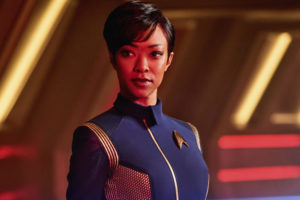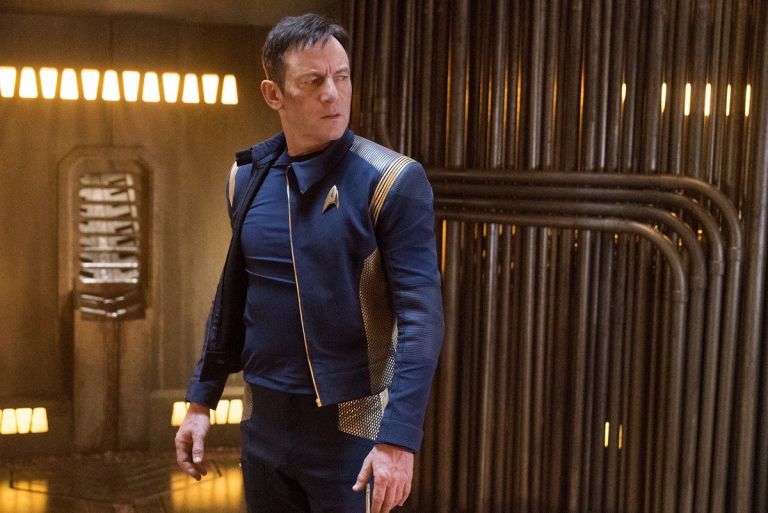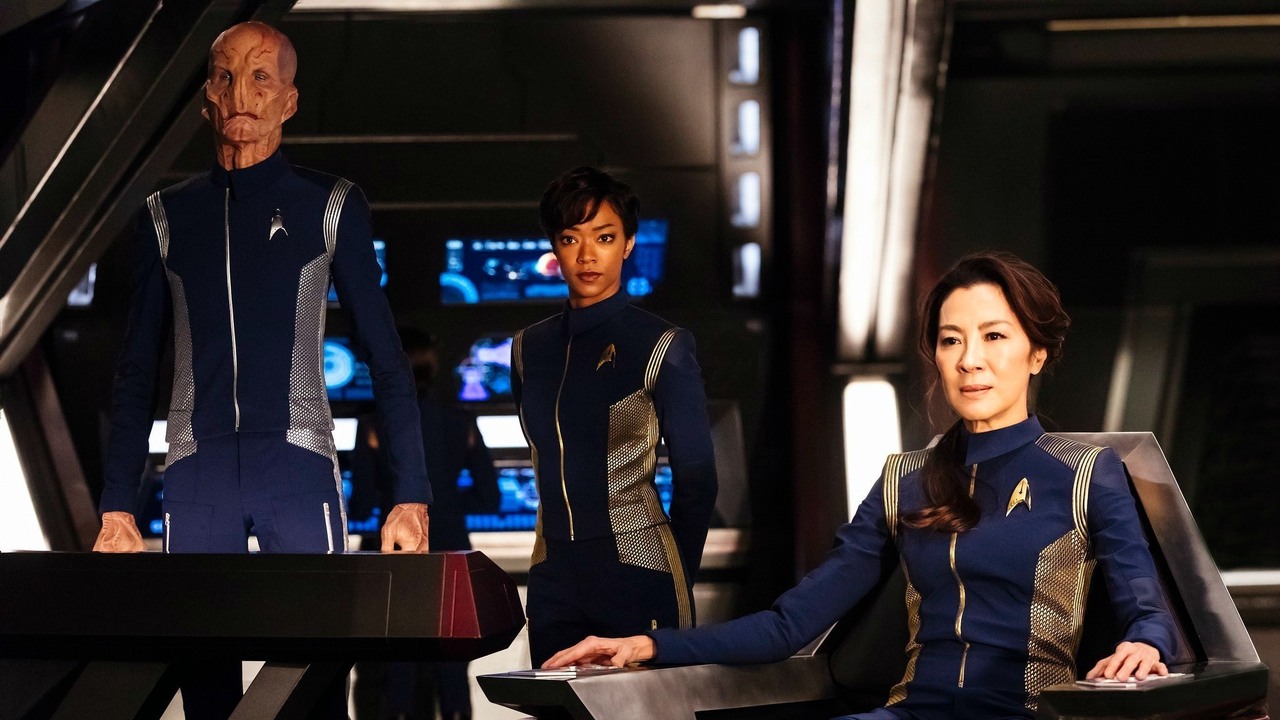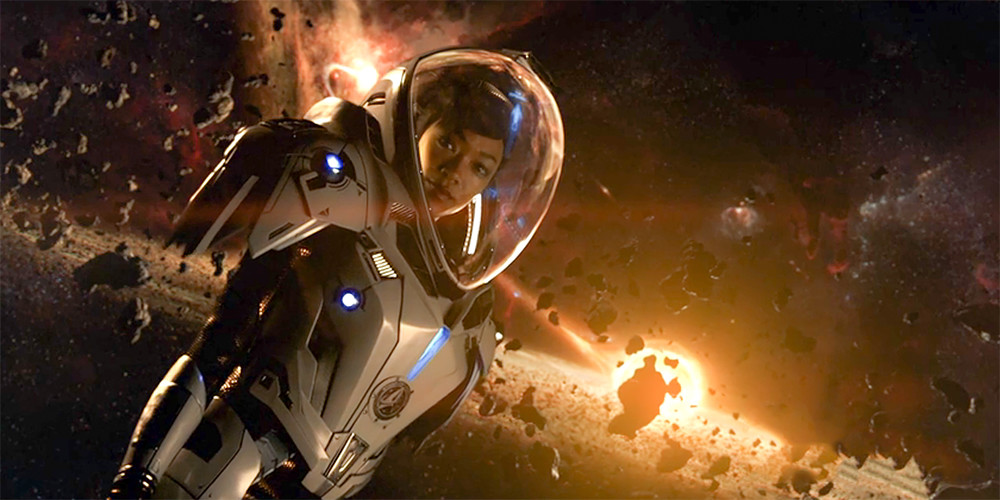Tomorrow isn’t promised today, and neither is the next rendition of your favorite science fiction franchise. I don’t think you could have found a person more excited to hear Star Trek Discovery was coming to CBS All Access. It’s been nine weeks since the new prequel show premiered. Normally, I review a show after three episodes. This keeps the review timely and gives me enough of the show that I can learn its tone and the rules of the universe it abides by.
Yet, here I am reviewing Star Trek Discovery nine episodes in. It’s taken all nine of those episodes for me to figure out where my feelings stand with this series.
Star Trek Discovery certainly is a different show from the series that you’re used to. Enterprise, Voyager, The Next Generation, and the original series all waxed poetic about the magic of exploration mostly. Though slightly unrealistic in their portrayal of humanity, they each examined want it meant to be human and how important exploration is to our collective identity.

Sonequa Martin-Green as Commander Michael Burnham
But Discovery takes a different tact. Having been raised by Vulcans almost all her life, Commander Michael Burnham is the first officer on the Shenzhou, a Federation exploration vessel. The Shenzhou is thrust into a conflict with the Klingons, mostly through the fault of Commander Burnham and that is when the show really begins.
Some people don’t think Discovery is that good, and they cite all the things the show’s producers and writers have taken liberties with as the reason why. I like the show, but they’re not completely wrong. Discovery is first and foremost – despite what its creators say – a show about alien wars. Only after the first three episodes do you ever get any true character development. The show dumps the traditional look of Klingons. If you ever wanted to hear swear words in a science fiction show, Star Trek Discovery has them, plus Klingon sex and new propulsion technology that makes no sense at all. I should say, it makes even less sense than the subspace corridors Voyager got away with in later seasons. And that’s saying something.
Star Trek Discovery has them, plus Klingon sex and new propulsion technology that makes no sense at all.
So how could I like a show with these flaws? I don’t agree that all these attributes ruin the show. Swear words add a realistic flavor to the show’s dialogue. An alien ship larger than seventeen football fields appears on my view screen and I’m dropping some expletives for sure. The show could do with a more hopeful tone, but I don’t mind seeing the in and outs of a war after Voyager beat exploration to death. And about the Klingon sex, it fits into a large narrative that feels very right for a plot about war and trauma that it leaves behind.
I still yell “Come, on” a few minutes after 8:30 PM on Sunday nights despite liking the show. Every episode of the first half season – no matter what the problem is at the moment – centers around this drive. It’s as if a two-year-old found a new toy and can’t stop talking about it. The show is more serial than episodic, so I expected some of this, but my patience with every character’s arc revolving around this drive is starting to wear thin.
I’m almost positive that the season will end with the Klingon War concluding and the drive getting destroyed, and I hope that conclusion feels earned when it does. Right now, it barely feels like there is a war going on at all and I’d just like all the talk of the magic drive to stop.
To make matters worse, there seems to have been no adults in the room telling series producers to show some restraint on design and visuals. Discovery is a feast of special effects. Its Klingons are inspired by Star Into Darkness instead of its sister television shows, resulting in bulky, almost cartoonish looking takes on the aliens we’ve seen for decades. The Discovery herself looks like some trekkie’s kitbashing project. There are holograms for no reason other than someone clearly thought holograms were cool, and all this makes the show feel out of place next to the shows that came before it.

Jason Isaac’s as Captain Lorca.
If you’re wondering when the mental gymnastics required to keep focused on the story and not the special effects finally overcame my senses, it was the day the Discovery used its new propulsion technology for the first time. I’m sitting there and the ships saucer section begins to rapidly spin like some overgrown pizza cutter with warp nacelles. The ship flipped and surfaced somewhere else.
“But why” I softly whispered to myself as I cackled and struggled to not let the Xbox One controller I had in my lap fall to the floor with a thud.
Yep, that’s a lot of bad to take in. But hear me out, because there are some things about Star Trek Discovery that we can work with.
But hear me out.
There’s some good casting at work here. Sonequa Martin-Green plays the emotionally stunted, haunted and traumatized Commander Burnham. Martin-Green pulls off the role well, even if her character is utterly unlikable until 3 episodes in. Jason Isaacs’ Captain Lorca is a bad-ass war tactician. How anyone continues to let this man stay in a Captain’s Chair is beyond me, but I really like the guy and his take on a star fleet captain. We sometimes get the worst of humanity out of Lorca, and Star Trek Discovery is a better show because of it.

The supporting cast is ok too. Mary Wiseman’s Cadet Sylvia Tilly is just the low-rent comic relief for now, but I hope she grows into something in the future. She provides a career-track point of view that we haven’t gotten a lot of since Wesly Crusher. Anthony Rapp’s scientist character is smug and a bit of jerk, but even he’s mildly serviceable.
It’s Shazad Latif’s character in Star Trek Discovery that caught me by surprise the most. In later episodes, his Lieutenant Ash Tyler becomes very, very interesting. Maybe even more interesting than Lorca or Tilly. For spoiler reasons, I’ll let you find out more about that on your own.
I’ve said all that to say this: Star Trek Discovery isn’t nearly the train wreck that some people make it out to be, though it’s not exactly the runaway best story on television either. There are absolutely some boneheaded plot developments stuffed between the pages of its script, and I could do with a little less eye candy. But it’s not utter garbage unworthy of the Trek moniker either. Star Trek has always been moments of fresh takes on hot topics and good dialogue with characters we’ve grown to love. It’s always suffered from somewhat hamfisted dialogue and a universe that’s so complicated fans can’t wait to find a mistake in its lore.
If the measure of a good show is “Do you want to know what happens next and is it watchable,” I believe that Discovery meets that bar. At least for now, Star Trek Discovery will keep its spot on my watch list when the second half of its first season premieres in January.
